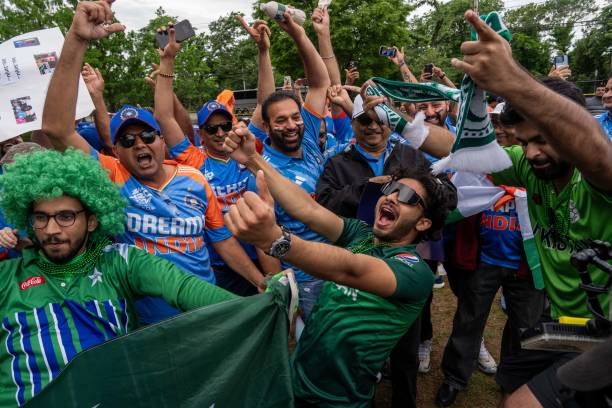Cricket is something beyond a game in the Indian subcontinent; a common energy joins millions across borders. With India, Pakistan, Sri Lanka, and Bangladesh bragging some the most energetic cricket fans, the game has turned into a fundamental piece of the locale's social and political texture. Past the arenas and records, cricket plays had a critical impact in discretion, filling in as both a scaffold and a landmark for worldwide relations in South Asia.
Historical Context of Cricket in the Subcontinent
The beginnings of cricket in the subcontinent date back to the English pilgrim period. Presented by the English in the eighteenth and nineteenth hundreds of years, the game immediately acquired prevalence and turned into an image of provincial pride. The main major cricketing experiences in the district were played between English drove groups and nearby clubs. Following freedom and the parcel of India and Pakistan in 1947, cricket kept on being a huge method for commitment between the two countries, notwithstanding political pressures.
India-Pakistan Cricket Diplomacy
The most striking illustration of cricket tact in the subcontinent is the connection among India and Pakistan. Since their autonomy, the two countries have battled various conflicts and persevered through delayed threats. Nonetheless, cricket has frequently arisen as a stage for exchange and compromise.
One of the main significant occurrences of cricket discretion happened in 1987, when Pakistani President General Zia-ul-Haq went to a Test match in India as a feature of the "Cricket for Harmony" drive. This was during a time of uplifted military pressures between the two nations. Essentially, in 2004, Indian State head Atal Bihari Vajpayee and his Pakistani partner, Pervez Musharraf, involved cricket as a conciliatory device to ease pressures, prompting India's memorable visit through Pakistan after an extended rest.
Notwithstanding these endeavors, cricket matches among India and Pakistan have additionally reflected political strains. Reciprocal series have frequently been dropped because of strategic questions or psychological militant occurrences. Be that as it may, when they really do play in global competitions like the Cricket World Cup or Asia Cup, the matches draw monstrous worldwide consideration, frequently seen as something other than a wearing challenge however as an expansion of public contention.
Sri Lanka, Bangladesh, and Cricket’s Role in Diplomacy
Past India and Pakistan, cricket discretion plays had an impact in the more extensive subcontinent. Sri Lanka has involved cricket as a binding together power, especially during its long polite conflict. The nation's cricketing achievement, including its 1996 World Cup triumph, helped cultivate public solidarity.
Bangladesh, subsequent to acquiring freedom from Pakistan in 1971, involved cricket for of laying down a good foundation for itself on the global stage. At the point when India and Pakistan played in Bangladesh during the 2011 ICC Cricket World Cup, it represented a snapshot of compromise, demonstrating the way that cricket can connect verifiable divisions.
Cricketing Events and Political Engagements
Major cricketing occasions in the subcontinent have likewise worked with strategic commitment. The 2011 ICC Cricket World Cup, co-facilitated by India, Sri Lanka, and Bangladesh, saw a critical strategic second when Indian State head Manmohan Singh welcomed his Pakistani partner, Yousaf Raza Gilani, to watch the India-Pakistan elimination round in Mohali. This gathering was viewed as a stage toward working on two-sided ties.
Likewise, cricket visits have frequently been utilized as altruism signals. The visits of groups to Pakistan, in spite of safety concerns, have been viewed as supports of harmony endeavors. Sri Lanka, in spite of experiencing an unfortunate fear based oppressor assault in its cricket crew in Lahore in 2009, was among the main groups to return and play in Pakistan, featuring the soul of sportsmanship and flexibility.
Challenges and Future Prospects
While cricket discretion plays had a pivotal impact in South Asia, it has likewise confronted difficulties. Political strains, security dangers, and patriot opinions have now and again eclipsed the soul of the game. The suspension of reciprocal series, for example, among India and Pakistan, has restricted the viability of cricket as a conciliatory device.
In any case, the fate of cricket strategy stays confident. With developing territorial participation through occasions like the Asia Cup and ICC competitions, cricket keeps on giving a space to exchange. The foundation of new associations and competitions in the locale likewise presents potential open doors for commitment past public contentions.
Conclusion
Cricket in the subcontinent is something other than a game — a strong conciliatory device can possibly span partitions and encourage harmony. While it has been an impression of political threats on occasion, it has likewise given open doors to compromise and solidarity. As the game keeps on advancing, so too does its part in forming strategy in the subcontinent. Whether through snapshots of extreme contention or demonstrations of donning generosity, cricket stays a vital participant in the locale's international scene.








.jpeg)







.jpeg)
0 Comments